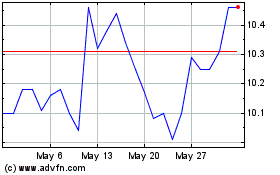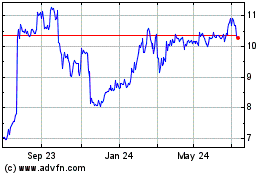John Gutfreund died Wednesday at age 86, marking the formal end
of an era on Wall Street when swashbuckling bond traders made huge
bets using house money.
A cigar-chomping former bond trader, Mr. Gutfreund spent 38
years at Salomon Brothers, once a feared powerhouse on Wall Street
that he boasted was "the greatest trading organization the world
has ever known."
Mr. Gutfreund transformed Salomon into the dominant force in the
Treasury securities market, overseeing a trading floor the size of
a football field. Under his helm, Salomon made big wagers using the
firm's cash and sold the first mortgage-backed bonds. He turned
Salomon from a private partnership to a publicly traded firm.
Business Week dubbed him the "King of Wall Street."
But Mr. Gutfreund's career at Salomon came to a sudden halt in
1991 amid a Treasury-note auction scandal, one of the largest ever
on Wall Street.
In one instance, Salomon controlled an astonishing 94% of the
two-year Treasury notes sold to competitive bidders at an auction,
enabling Salomon to corner a good portion of the market, violating
Treasury rules.
He became personally embroiled in the scandal when Salomon
revealed that he had been told the firm had made an illegal bid in
a Treasury-note auction, but didn't report the wrongdoing to the
government for months.
Nestled in his elegant 43rd-floor office in 7 World Trade Center
overlooking the Hudson River, Mr. Gutfreund initially sought to
tough it out. Dressed in his trademark dark suit and white shirt,
he told top executives at a closed-door meeting shortly after the
disclosures: "I'm not apologizing for anything to anybody.
Apologies don't mean s—. What happened, happened."
He soon was pressured to resign, following two calls from the
furious head of the Federal Reserve Bank of New York who had
demanded action.
It was one of the swiftest falls for a leading Wall Street chief
executive: Just weeks earlier, Salomon had reveled in record
earnings, driven largely by bond-trading profits.
Warren Buffett, the billionaire investor who had held a large
Salomon stake, stepped in and helped lead the firm out of the
scandal. The reality of the firm's business strategy later was
crystallized in a homespun way at a Salomon board meeting.
Charles Munger, Mr. Buffett's close associate and then a Salomon
director, likened Salomon's trading arms to a "gambling casino with
a restaurant out front."
The casino—the group doing proprietary trading for the house—"is
the thing we really want because it makes a lot of money," he told
directors. "And we're happy to have the restaurant"—customer
businesses such as stock and bond trading and investment
banking—"as long as it doesn't cost too much."
Salomon in 1992 struck a $290 million accord with the Securities
and Exchange Commission and other government agencies to settle
allegations relating to the bidding scandal.
Salomon never was the same, and later was absorbed into what
became Citigroup Inc. In his later years, Mr. Gutfreund cut a far
lower profile, working for a time as a senior adviser at C.E.
Unterberg, Towbin, a boutique firm.
Born in Scarsdale, N.Y., Mr. Gutfreund attended Oberlin College,
received a degree in English and served in the U.S. Army in Korea.
He joined Salomon in 1953 after his Army service as a trainee in
the statistical department, clerked in the firm's municipal-bond
department and later became a trader. Even after he rose into
management, he would spend hours smoking cigars and trading
securities.
Under Mr. Gutfreund's helm, Salomon traders could make huge
amounts of money—often far exceeding what he earned.
Mr. Gutfreund also helped oversee the rise of oil trading on
Wall Street.
Through it all, Mr. Gutfreund presided over bawdy antics of some
of Salomon's traders. Some of these were depicted in the
best-selling book "Liar's Poker," which irked him. In the book,
former Salomon bond salesman Michael Lewis painted an unflattering
picture of Salomon sticking certain clients with bad bonds on
occasion, among other things.
At Salomon's 1990 annual meeting, Mr. Gutfreund admitted that
the book had made the firm "a laughingstock" and caused tension
with clients.
At the meeting, Mr. Gutfreund said he never met Mr. Lewis, and
said the book bore "no relation to reality." The book
"systematically attempted to say we ravaged our customers. It
didn't make much sense," he said. "We may have been stupid, but we
have been honorable in dealing with our customers."
In an unusual diversion from the meeting's Wall Street
solemnity, Mr. Gutfreund also critiqued other financial books. He
called "Barbarians at the Gate"—the account of the mammoth RJR
Nabisco Inc. takeover—a "pretty good book."
One passage in "Barbarians" describes Salomon pulling out of the
deal because its name wouldn't be on the preferred side of a
planned advertisement.
That passage was "a gross oversimplification," Mr. Gutfreund
said. "We had major reservations about other aspects of the
deal."
Outside of work, Mr. Gutfreund was very fond of Tony Bennett and
his music and his painting. Mr. Bennett used to visit Mr.
Gutfreund's apartment in New York to sing.
(END) Dow Jones Newswires
March 09, 2016 17:05 ET (22:05 GMT)
Copyright (c) 2016 Dow Jones & Company, Inc.
Pacific Current (ASX:PAC)
Historical Stock Chart
From May 2024 to Jun 2024

Pacific Current (ASX:PAC)
Historical Stock Chart
From Jun 2023 to Jun 2024
